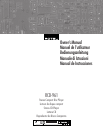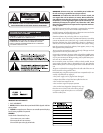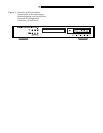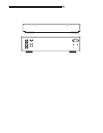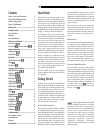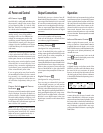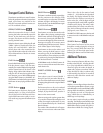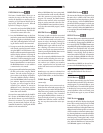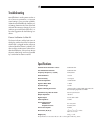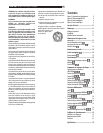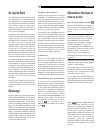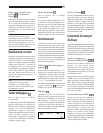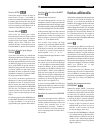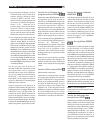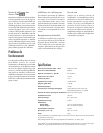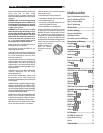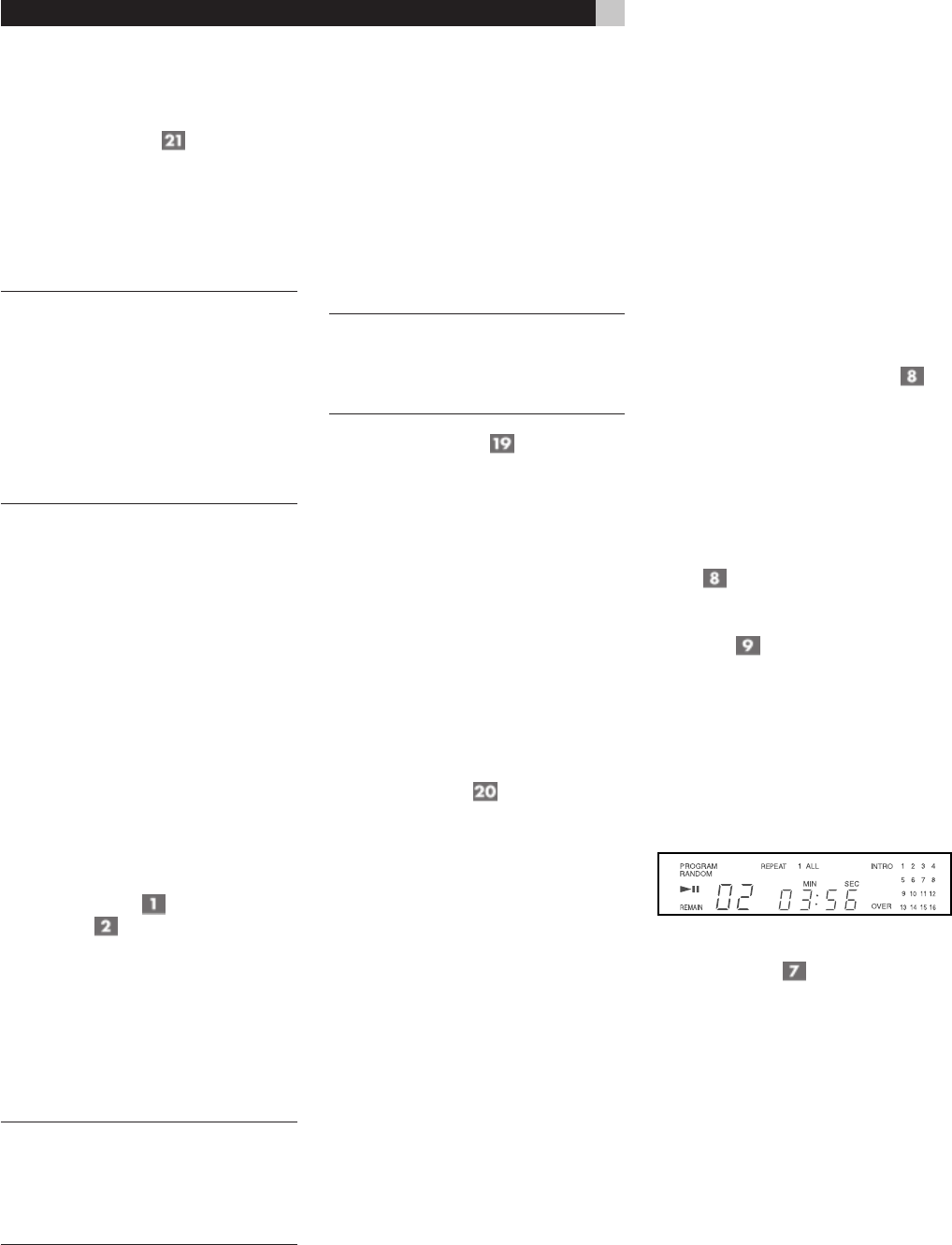
6
AC Power and Control
AC Power Input
Your RCD-961 is configured at the factory for
the proper AC voltage in the country where
you purchased it (either 115 volts or 230/
240 volts. The AC line configuration is noted
on a decal on the back panel.
Note: Should you move your CD player to
another country, it may be possible to
reconfigure it for use on a different line
voltage. Do not attempt to perform this
conversion yourself. Opening the enclosure
of the RCD-961 exposes you to dangerous
voltages. Consult a qualified service person
or the Rotel factory service department for
information.
The RCD-961 should be plugged directly into
a 2-pin polarized wall outlet or into the
switched outlet on another component in your
audio system. Do not use an extension cord.
Be sure the power switch on the front panel
of the RCD-961 is turned off (in the “out”
position). Then, connect the supplied power
cord to the AC power receptacle on the rear
of the unit and the AC power outlet.
If you are going to be away from home for
an extended period of time such as a month-
long vacation, it is a sensible precaution to
unplug your CD player (as well as other au-
dio and video components) while you are
away.
Power Switch and Power
Indicator
The power switch is located on the front panel
of your CD player. To turn the CD player on,
push the switch in. The LED indicator above
the switch and the Display will light up, indi-
cating that the CD player is turned on. To turn
the CD player off, push the button again and
return it to the “out” position.
Note: If you are using a switched outlet to
turn on and off your CD player, you should
leave the power switch in the “on” position.
When AC power is applied to the unit, it
will power up in fully active mode.
Output Connections
The RCD-961 gives you a choice of two dif-
ferent kinds of output connections — an analog
output signal from the built-in D/A converter
for use with conventional analog audio com-
ponents and a coax digital output which pro-
vides an unprocessed digital data signal for
use with outboard D/A converters or digital
processors.
Note: To prevent loud noises that neither
you nor your speakers will appreciate,
make sure the CD player is turned off when
you make any signal connections.
Analog Outputs
[See Figure 3 for wiring illustration]
A pair of standard RCA jacks supplies an
analog output signal from the RCD-961 to the
source inputs of an audio preamplifier, in-
tegrated amplifier, or receiver.
Select high quality audio interconnect cables.
Connect the left channel output of the RCD-961
to the left channel source input on the pream-
plifier or other component. Connect the right
output of the RCD-961 to the right channel
source input on the preamplifier or other com-
ponent.
Digital Output
[See Figure 4 for wiring illustration]
If you are using an outboard D/A converter
or other digital processor, you will need an
unprocessed digital data stream from the
RCD-961, taken before the built-in D/A con-
verter. This signal is supplied by the RCD-961’s
back-panel digital output jack. Using a stan-
dard 75 ohm coax digital cable, connect the
RCD-961’s coax digital output to the coax
digital input connector on the outboard D/A
converter.
Operation
The RCD-961 can be operated using its front
panel buttons or from corresponding buttons
on the supplied infrared remote control. Spe-
cific instructions for each of these controls are
detailed below. Most of the buttons are du-
plicated on the front panel and on the IR re-
mote control. However, there are a few ex-
ceptions where the buttons are only available
on one or the other. These exceptions are noted
in the instructions.
Infrared Remote Control
Before using the IR remote control, it is nec-
essary to install two “UM-4/AAA” batteries
(supplied). Remove the plastic cover on the
back of the IR remote, install the batteries (ob-
serving the + and – polarity indications), and
reinstall the cover.
To use the IR remote control, aim it at the IR
sensor
located in the Display area on the
front panel of the RCD-961.
Display
A lighted Display on the front panel of the
RCD-961 provides useful information about
the status of the unit, activation of special
features, and track/time information for the
disc being played. Each of these indicators
is described in the detailed operating instruc-
tions that follow.
Disc Drawer
A motor-driven disc drawer, located in the
center of the RCD-961, slides out to accept a
compact disc and retracts to play the disc. Place
the compact disc in the drawer label-side up.
Make sure the disc is properly centered in the
tray. The drawer can be closed in two ways:
pushing the OPN/CLS button or pushing the
PLAY button.
RCD-961 Stereo Compact Disc Player



